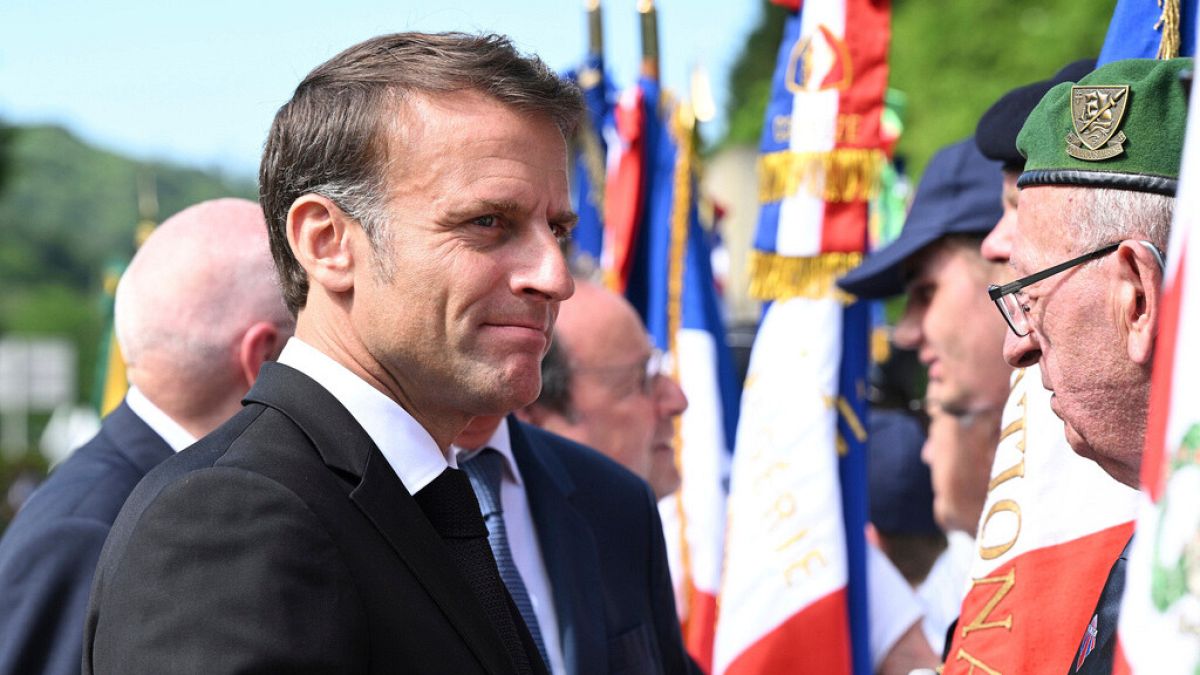French President Emmanuel Macron’s delicate political situation could limit his influence in the election of the new top European officials.
French President Emmanuel Macron’s decision to dissolve the National Assembly following his poor results in the European elections sent shockwaves across Europe.
In Brussels, his announcement opens the door to a period of uncertainty in the EU’s institutional process according to analysts.
The provisional results of the European elections show that Macron’s Renaissance party won 15.2% of the vote compared to 31.5% for Marine Le Pen’s National Rally party – prompting the President to call early legislative elections for the National Assembly.
The elections could lead France to a situation known as ‘cohabitation’ in which the current President Macron and the prime minister who emerges from the elections belong to different parties.
The coincidence of the legislative elections during the timeframe where EU leaders have begun the debate to renew the institutional power structure, including the presidency of the European Commission and the European Council, could weaken France’s voice in the processes.
“We remember the Sorbonne speech in April, when he was very ambitious. He called for ambitious action for the European Union,’ notes European Policy Centre analyst Eric Maurice.
If the situation changes, so could Macron’s role in influencing Brussels. “He may be less in a position to impose this agenda on his European partners, less in a position to point the way forward for the EU and its game or at least his position in the appointment of the Commission presidency and the presidency of the European Council,” Maurice believes.
Farewell to the leading Macron?
In 2019, Emmanuel Macron succeeded in appointing several European leaders. He gave Ursula von der Leyen the presidency of the European Commission, secured the ECB presidency for France with Christine Lagarde, and helped place Thierry Breton as European commissioner for the internal market.
In case of cohabitation, the French president risks losing his influence in the drafting of the next European legislative texts.
“It could be more difficult if Macron has someone like Jordan Bardella at home as prime minister,” says Centre for European Policy Studies analyst Sophia Russack.
Bardella, the young star of the far-right National Rally party, will be Le Pen’s choice if she wins the election, and Russack says Macron’s “enthusiasm at the European level” could be hampered by being “tied at home”.
Official negotiations to appoint the next president of the European Commission and the next president of the European Council will begin next week. France and Germany, the EU’s largest and most powerful countries, are used to having the most weight. This situation could now change.
“The two supposedly most important leaders, Olaf Scholz and Emmanuel Macron, come out of these elections weakened,” Russack recalls. A situation that could “give a little more space to the leaders of the other big countries, such as Poland, Italy and Spain”.
It remains to be seen what role the leader of other countries such as Poland’s Donald Tusk, Italy’s Giorgia Meloni and Spain’s Pedro Sánchez will play.

